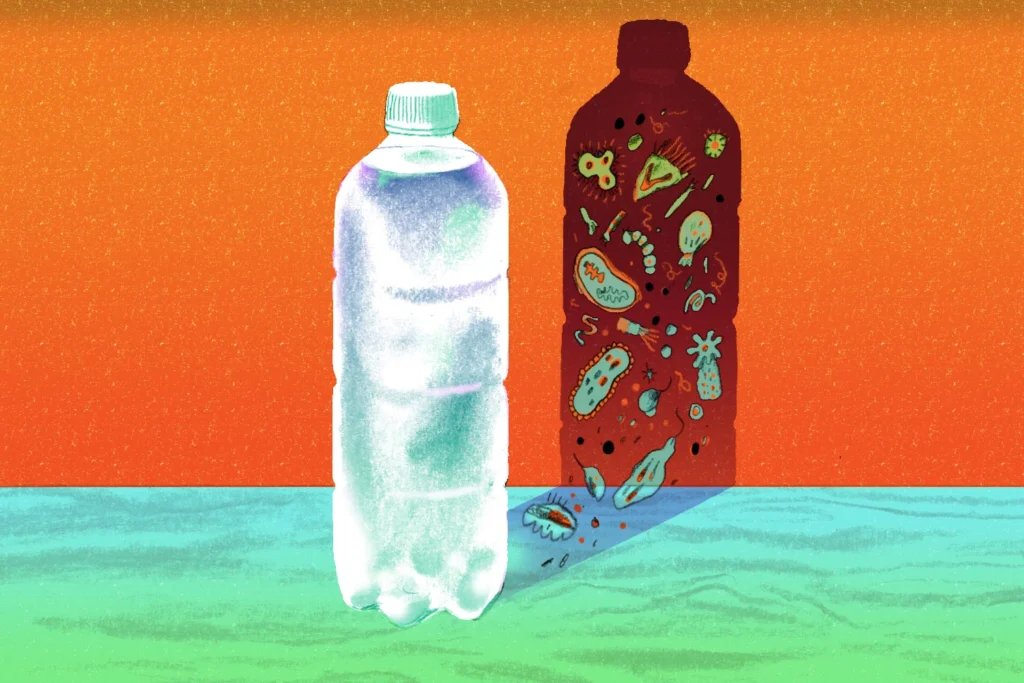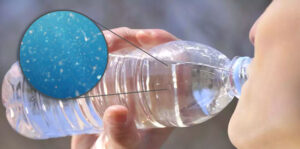Truth About Bottled Water Expiration Dates: Chemicals, Bacteria & Safe Disposal


Source: MyRecipes
Have you ever taken a swig of bottled water, only to discover that it has a chemical flavor? It turns out that bottled water can have an expiration date, but the date is not a warning about the presence of toxic microplastics in your drink. Instead, it is an indication of when leached chemicals will begin to affect the water’s taste. The shelf life of bottled water varies by brand, with some lasting as long as two years, while others have a shelf life of only three months. The FDA has taken the stance that bottled water can last indefinitely if stored properly, but improperly stored water can become toxic or contaminated over time.
One reason for the stale taste of expired bottled water is the deterioration of the bottle, which can cause microscopic chemicals to shed into the water. Your water may taste like medicine, chlorine, or ozone due to these additives. Some of the chemicals shed by bottles, such as antimony and phthalate esters, can be toxic, but the amount that is released is typically below the limits set by the FDA. PET plastic bottles release the most antimony out of all common bottle materials, but even these bottles should not release enough chemicals to make the water inside toxic.
The International Bottled Water Association advises against storing bottled water next to household solvents, such as paint or drain cleaner, as air molecules can travel in and out of the bottle, and vapors from these solvents could alter the flavor of the water.

Source: Aspen Water Solutions Water Treatment Systems
While studies show that the amount of chemicals in expired water is typically below the limits set by the FDA, hot water can dissolve larger amounts of chemicals than room temperature water. According to research, PET bottles heated beyond 86°F can produce an excessive quantity of phthalate esters, and bottles heated above 140°F can release dangerously high levels of antimony. As a result, while a water bottle that has been sitting on a shelf in the sun or in a hot car boot may be unsafe to drink, one that has been kept in a cool, dark spot may still be.
In rare instances, bacteria may be to blame for the rancid flavour of expired bottled water. Accidents do happen, despite the stringent procedures bottled water businesses use to keep their products hygienic. Any bacteria in the water won’t likely have much opportunity to reproduce if you drink the bottled water soon away. But if you leave a bottle in sunlight for an extended period, you create a warm, stable environment for them to multiply. Water that has been contaminated may taste musty, moldy, marshy, sour, or rancid. Your water might make you ill if it tastes like marsh.

Source: Dr. Axe
What should you do with an expired water bottle? It can be tempting to give it to your plants or animals, but doing so could be harmful because the same toxins that endanger your health also have the potential to harm them. An activated charcoal filter can be used to filter your water instead, and this should get rid of most of the impurities. If you suspect that your water contains microorganisms, boiling it for one minute should eradicate the majority of infections. Because bacteria from your hands and lips can colonize the bottle by the time you decide to refill it, experts do not advise doing so unless the packaging specifically states that it is okay. After finished, you may just place the bottle in the recycling bin. Glass and plastic bottles are both 100% recyclable, and your bottle will likely be used again in the future.
In conclusion, the expiration date on bottled water is not necessarily an indication of the presence of harmful chemicals or toxins, but rather a warning about the potential deterioration of the bottle and the resulting impact on the taste of the water. While the FDA maintains that properly stored bottled water can last indefinitely, it is important to be mindful of storage conditions, especially avoiding exposure to heat and household solvents. In the rare case that microorganisms have contaminated the water, it is best to avoid consuming it and instead filter or boil it before use. Ultimately, proper disposal of expired water bottles through recycling is the safest and most environmentally responsible option.
Source: Business Insider